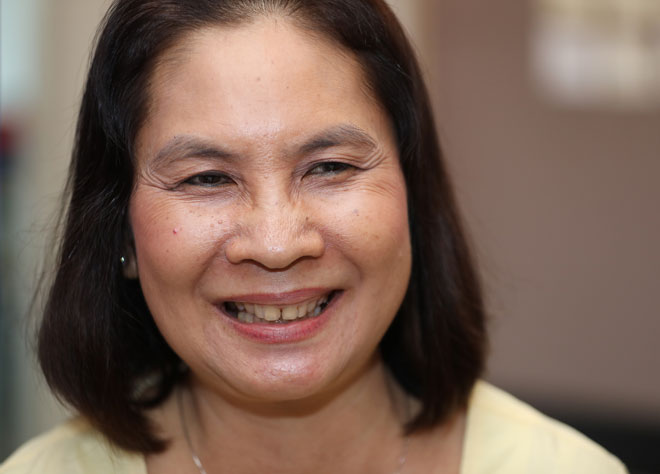
Rosalind Anding, Sarawak’s first female champion hurdler

Rosalind Anding

Yip Pau Cheng
KUCHING: “What they have done for Sarawak and the country must be appreciated and never be forgotten,” said Minister of Welfare, Community Well Being, Women, Family and Childhood Development Datuk Fatimah Abdullah at the start of this week.
It was a ceremony to honour state sportswomen featured in the soon-to-be-published book ‘Sarawak Women in Sports.’
This paper regrets that there was a mix-up in the photos of Rosalind Anding and Yip Pau Cheng which accompanied the story ‘They wrote the pages of Sarawak’s sports history’ that appeared yesterday.
The Borneo Post would like to say sorry to Rosalind and Pau Cheng with an extended tribute to these two pioneers who blazed trails of glory for the next generation of athletes.
Track & Field was the first sport to be formally organised state-wide and to regularly send athletes to compete in the Borneo Games and Malaya.
The first state championships was held at the Jubilee Ground in 1954.
Those were the days when distances were measured in the imperial system and athletes ran on grass.
It was only in the third state championships in 1956 that events were held for women.
In 1957, Rosalind Anding of St Mary’s School, Kuching won the 220 yards sprint in a record time of 29.5sec.
The 80 yards hurdles race was introduced in 1958.
This was the event that Rosalind really found her forte.
She was state champion for three consecutive years and finally bowed out with the Sarawak record of 14.2sec.
Her dominance in the hurdles was passed to Kueh Swee Hong who eventually became the first Sarawakian to win a SEAP (Southeast Asia Peninsula) Games gold medal in the event in 1965.
Table tennis prodigy Yip Pau Cheng started representing Sarawak and Malaysia as a teenage school girl from Sarikei.
She continued to don state and national colours for over a decade.
She was also among the first Sarawakians or Malaysians to visit China before its open door policy.
The early 1970s are remembered for the history-making ‘ping pong diplomacy’ when China invited foreign teams to play against their players.
It paved the way for the United States and other Southeast Asia countries including Malaysia to establish diplomatic ties with China by 1974.
It was in this context that Pau Cheng visited China in 1973 as a member of the national team for the 1973 Afro-Asia Championships.
To this day she continues to coach and lead youth and cadet players to inter-state tournaments.
